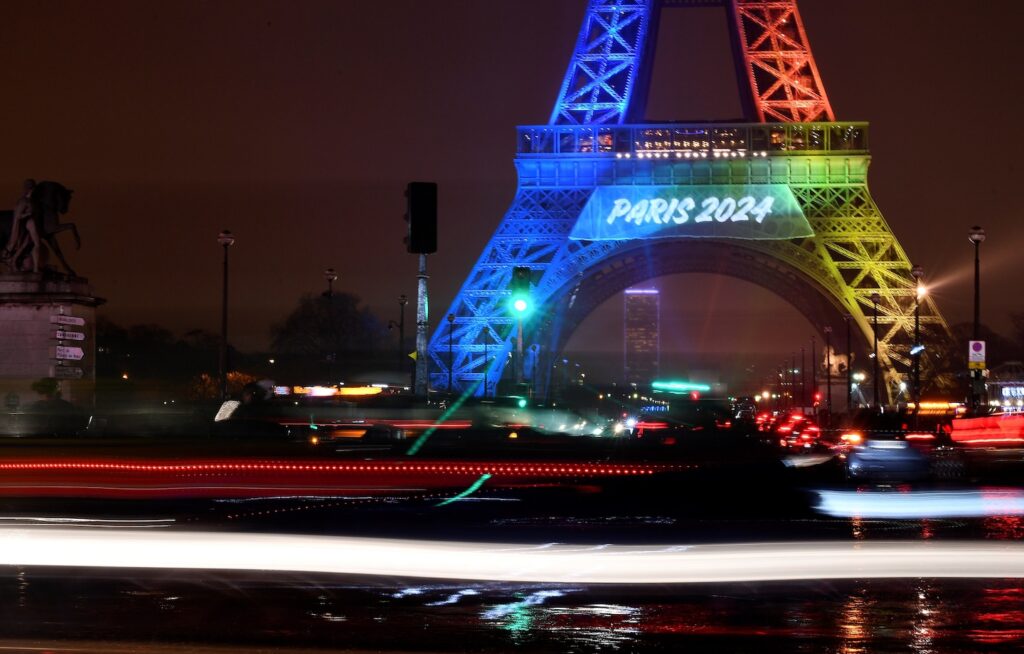With this amount, all residents “will have what they expect and what they need,” Olympic and Paralympic Village Mayor Laurent Michaud said in an interview with Sky News.
Michaud said organizers' goal was to have the more than 14,000 athletes, staff and media members who will be in the Village during the tournament “feel very engaged and comfortable.” The Olympic and Paralympic Games will be held from July 26th to September 8th.
Alcohol will not be served, as is often the case in the Olympic Village, but “it will be a great place for the athletes to really share the moment,” he said.
The news will be welcomed by many athletes who were asked by the International Olympic Committee to “avoid unnecessary physical contact” during the last Summer Olympics and Paralympics due to the pandemic.
Handing out condoms at conventions is not a new tradition. It dates back to the 1988 Seoul Olympics, when about 8,500 condoms were distributed to raise awareness of HIV/AIDS, according to Slate. However, over time, the number skyrocketed. At the 2000 Sydney Olympics, organizers had to order an additional 20,000 condoms after realizing that the 70,000 condoms they had originally ordered were insufficient, according to reports. Sports magazine “Inside the Games”.
At the 2016 Rio Olympics, 450,000 condoms were distributed to both men and women, a record high, and the New York Post ran an article with the headline, “A ridiculous amount of condoms shipped to Brazil for the Olympics.'' Posted.
Even in Tokyo, where close contact is prohibited, condoms were not completely unused. Organizers had planned to distribute 150,000 condoms, but told Reuters they were “not for use in the Olympic Village, but for athletes to take back to their home countries to raise awareness.” Told.
It's impossible to know exactly how much sex happens among Olympic athletes, but athlete anecdotes suggest there's no shortage. “There's a lot of sex going on,” Hope Solo, an American soccer goalie and two-time Olympic gold medalist, told ESPN in 2012. Ryan Lochte spoke of “70 to 75 percent of Olympic athletes.” he was having sex.
Paris recently announced that it would use the opportunity presented by the Games to redesign the packaging of condoms it distributes throughout the year. City Hall is hosting a competition to design the next package on the theme of sexual consent, encouraging support for the Olympic “festive framework”.
Not all Olympic participants are busy. As The Washington Post previously reported, some athletes are skeptical that the amount of condoms ordered at past Olympic Games is actually needed.
Providing 450,000 condoms at the Rio Olympics is “an absolutely huge condom allocation,” former British Olympic rowing medalist Zac Purchase told the Guardian in 2016. Purchase guessed that most condoms were not needed. “[I]A far cry from the truth of what it's like to be there. It’s not a cauldron of sexual activity,” Purchase said. “We're talking about athletes who are focused on producing the best performance of their lives.”
Meanwhile, American snowboarder and Olympic medalist Jamie Anderson told Us Weekly during the 2014 Winter Olympics in Sochi, Russia, that many people in the Olympic Village were using the dating app Tinder. said. But she said it became “too distracting” and she deleted her account “to focus on the Olympics.”
Athletes may be provided with condoms, but traditional items of French culture and potentially distracting items will not be provided. “Of course there is no champagne in the Village,” Michaud told Sky. “But in Paris, they can drink as much champagne as they want.”

